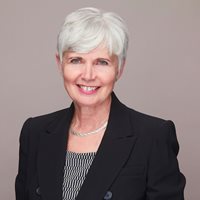
by Aileen Van Ginkel
Practices of communal discernment that are intertwined with decision-making and strategic planning processes offer an opportunity to bridge the divide between what is deemed to be “sacred” and what is said to be “secular.” This bifurcation prevents us, on the one hand, from getting the most that we can from sound strategic planning practices and, on the other hand, from gaining tangible benefits to our decision-making from prayer – particularly Scripture-focused listening prayer.
Discernment practices that are interwoven with strategic planning – indeed all kinds of decision-making – lend themselves to taking on an inclusive character as well. Decision-making processes that rely on the responsibility of all group-members to perceive God’s leading in the community, and then contribute insight out of those perceptions, will have the benefit of deepened satisfaction with the final decision that is made, even if the final steps in the process do not involve every person in the group.
An inclusive approach to discernment and decision-making rests ultimately on our understanding that Christ stands at the middle of our community; it is in and through Christ that we relate with one another. This understanding leads in turn to an insistence that we offer ourselves to be led in our decision-making by Christ, who is the Word incarnate, through Scripture – the means by which Christ’s incarnational presence among us is revealed to us.
Decision-making practices that are interwoven with prayer, inclusive in terms of participation and oriented to the incarnational presence of Jesus-with-us can be seen as important elements in a missional community. They contribute to a well-rounded life of discipleship – both individually and communally – that starts with the acknowledgment that we are called into God’s mission of reconciliation and that, if we want to participate in that mission, we need to be in a loving and listening relationship with God in Jesus Christ through the power of the Holy Spirit.
Although we might wish we had them at times, God does not provide us with roadmaps that lay out for us the details of God’s will for us far in advance. Instead, Jesus leads us into a relationship with the Father that is characterized by listening for God’s words step by step – much as Isaiah prophesied:
Your own ears will hear him.
Right behind you a voice will say,
“This is the way you should go,”
whether to the right or to the left.
(Isaiah 30:21 NLT)
How Scripture-focused listening prayer can best be interwoven with decision-making processes depends on various considerations, such as maturity in individual discipleship journeys and levels of trust among members of the community. Another critical factor is the willingness of community leaders to acknowledge that they themselves are first of all followers of Jesus Christ into God’s mission and, secondly, are called to lead others into a communal discipleship relationship, especially in relation to the unique calling of the community they lead.
Listening and learning are the hinge points between interwoven prayer and planning practices; God’s leading presence is perceived both in the practice of communal prayer disciplines and in discovering aspects of the community’s current reality that can be either built on or discarded. Greater capacity for communal listening and learning may indeed be a critical predictor of a community’s ability to “navigate the white waters of opportunity,” especially when the future is uncertain in many ways.
While details in size, timeframe and missional calling differ from one group to the next, those that have participated in an interweaving, inclusive and incarnational approach to missional direction-setting have indicated fruitful outcomes in three areas in particular:
- They have gained some clarity around their missional direction;
- They have experienced a greater degree of unity in understanding that missional direction; and
- They attest to a greater assurance that God is in the midst of the decision-making process and indeed leading it than they might have had otherwise.
The way in which communal discernment is practiced will vary across different communities, but coming together around a common experience of discerning God’s leading presence is invaluable to any group that is seeking to move into the future with greater degrees of shared understanding and trust in God.